
Vava'u: The Jewel of Tonga's Archipelago
Vava'u is an enchanting archipelago in Tonga, known for its stunning natural beauty and vibrant marine life. With its crystal-clear waters, lush greenery, and friendly locals, Vava'u offers an unforgettable experience for all who visit. The islands are a paradise for water sports enthusiasts, with opportunities for kayaking, sailing, and diving in the pristine coral reefs. The main island, Neiafu, serves as the gateway to the rest of the archipelago. Here, you can explore charming local markets, savor traditional Tongan cuisine, and enjoy the relaxed island lifestyle. The bustling harbor is a sight to behold, with yachts from around the world anchoring in the protected waters. One of Vava'u's most famous attractions is the annual migration of humpback whales. From July to October, these magnificent creatures visit the islands to breed and give birth. Whale watching tours offer a unique chance to see these gentle giants up close. Beyond the whales, the marine life in Vava'u is rich and diverse, making it a top destination for snorkeling and diving. For those seeking adventure on land, Vava'u's lush landscape is perfect for hiking and exploring. The island's caves, cliffs, and forests are filled with natural wonders and scenic vistas. Whether you're looking for relaxation or adventure, Vava'u's unique blend of natural beauty and cultural richness makes it a must-visit destination in the South Pacific.
Local tips in Vava'u
- Visit between July and October for the best whale watching opportunities.
- Pack reef-safe sunscreen to protect Vava'u's pristine coral reefs.
- Explore Neiafu's local markets for unique crafts and fresh produce.
- Rent a kayak to explore the hidden coves and secluded beaches.
- Try traditional Tongan dishes like 'ota ika' (raw fish in coconut milk) for an authentic culinary experience.
Vava'u: The Jewel of Tonga's Archipelago
Vava'u is an enchanting archipelago in Tonga, known for its stunning natural beauty and vibrant marine life. With its crystal-clear waters, lush greenery, and friendly locals, Vava'u offers an unforgettable experience for all who visit. The islands are a paradise for water sports enthusiasts, with opportunities for kayaking, sailing, and diving in the pristine coral reefs. The main island, Neiafu, serves as the gateway to the rest of the archipelago. Here, you can explore charming local markets, savor traditional Tongan cuisine, and enjoy the relaxed island lifestyle. The bustling harbor is a sight to behold, with yachts from around the world anchoring in the protected waters. One of Vava'u's most famous attractions is the annual migration of humpback whales. From July to October, these magnificent creatures visit the islands to breed and give birth. Whale watching tours offer a unique chance to see these gentle giants up close. Beyond the whales, the marine life in Vava'u is rich and diverse, making it a top destination for snorkeling and diving. For those seeking adventure on land, Vava'u's lush landscape is perfect for hiking and exploring. The island's caves, cliffs, and forests are filled with natural wonders and scenic vistas. Whether you're looking for relaxation or adventure, Vava'u's unique blend of natural beauty and cultural richness makes it a must-visit destination in the South Pacific.
When is the best time to go to Vava'u?
Iconic landmarks you can’t miss
Mapu'a Vaea Blowholes
Discover the breathtaking Mapu'a Vaea Blowholes in Tonga, where nature showcases its power through stunning ocean water spouts.
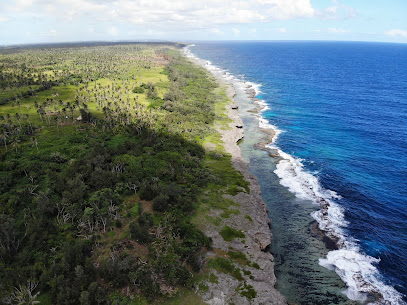
Tongatapu
Explore the breathtaking landscapes and rich culture of Tongatapu, Tonga's main island, a paradise for travelers seeking adventure and relaxation.
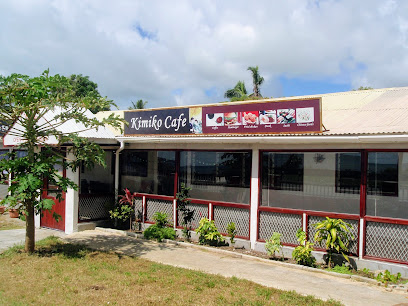
Royal Palace of Tonga
Explore the Royal Palace of Tonga, the majestic residence of the Tongan monarchy, and immerse yourself in the rich cultural heritage of this Pacific paradise.
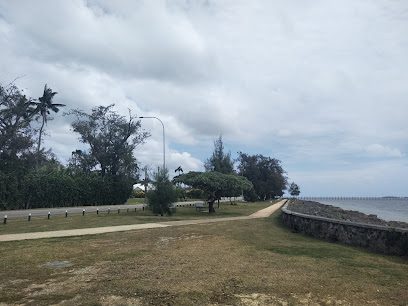
Anahulu Cave
Discover the enchanting Anahulu Cave in Haveluliku, Tonga, a geological wonder filled with stunning formations and rich cultural history.
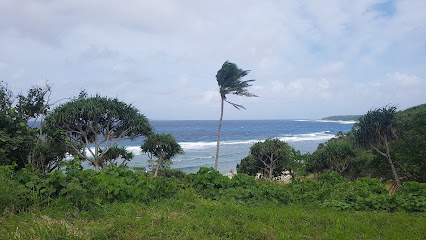
Royal Tombs
Discover the Royal Tombs of Tonga, a serene historical landmark that showcases the rich heritage and traditions of the Tongan monarchy amidst beautiful landscapes.
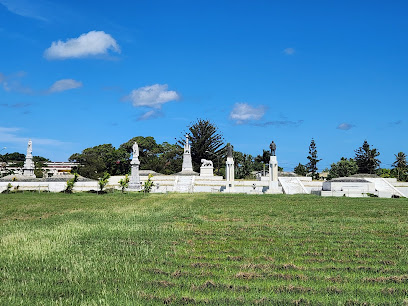
Ancient Tonga
Explore Ancient Tonga: A Journey Through Time in the Heart of the Pacific, Unveiling Tongan Heritage and Natural Splendor.
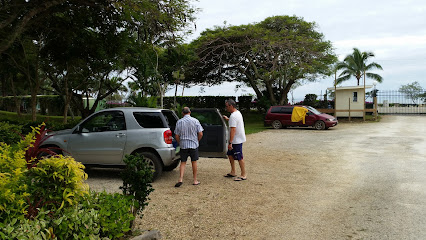
Ha'amonga 'a Maui Trilithon
Explore the ancient Ha'amonga 'a Maui Trilithon, a historical marvel in Tonga that showcases the island's rich cultural heritage and stunning landscapes.
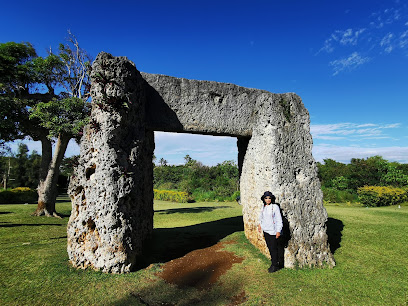
Nuku'alofa Tonga Temple
Discover peace and spirituality at the Nuku'alofa Tonga Temple, a stunning architectural gem in Liahona, Tonga.
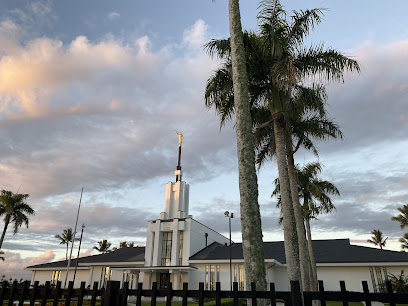
Fafa Island
Experience the beauty of Fafa Island, a tranquil paradise in the South Pacific, where relaxation meets adventure in a stunning natural setting.
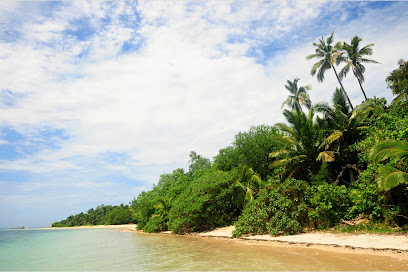
Ha'atafu Beach
Discover the tranquil beauty and vibrant marine life at Ha'atafu Beach, a tropical paradise on Tongatapu, Tonga, perfect for relaxation and adventure.
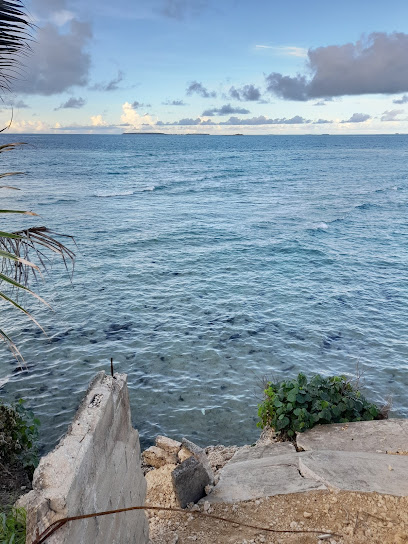
Captain Cook Landing Site
Explore the historical significance of the Captain Cook Landing Site in Tonga, where adventure meets cultural heritage at a breathtaking coastal landmark.
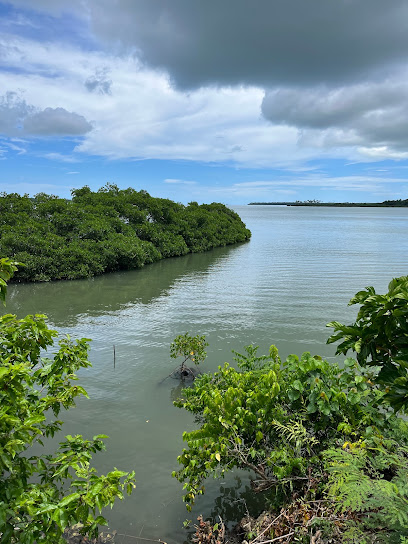
ʻEua
Explore the natural beauty and rich culture of ʻEua Island, Tonga's hidden gem, perfect for adventure seekers and nature lovers.
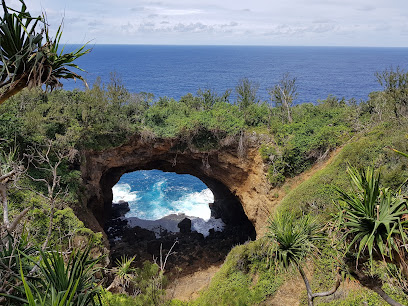
Blue Water Retreat
Discover the enchanting Blue Water Retreat in Tufuvai, Tonga - a serene escape with local cuisine, breathtaking views, and tropical adventures.
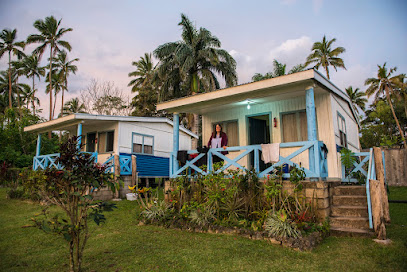
Paepae o Tele'a
Explore Paepae o Tele'a, a serene historical landmark in Mu'a, Tonga, showcasing the island's rich cultural heritage and architectural marvels.
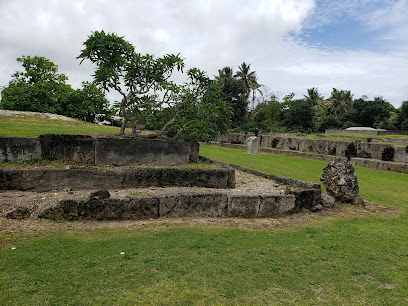
Pangaimotu Island
Experience the tranquility and natural beauty of Pangaimotu Island, Tonga's serene paradise with pristine beaches and vibrant marine life.
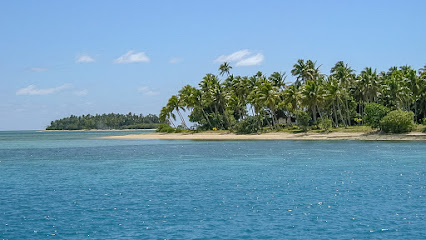
Unmissable attractions to see
Mapu'a Vaea Blowholes
Discover the breathtaking beauty of Mapu'a Vaea Blowholes in Houma, Tonga - a must-visit natural preserve for every traveler.
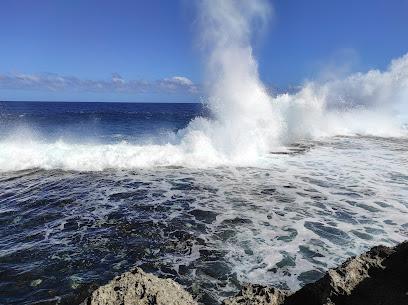
Anahulu Cave
Discover the breathtaking beauty of Anahulu Cave in Haveluliku, Tonga, where nature's wonders meet cultural heritage in a serene environment.
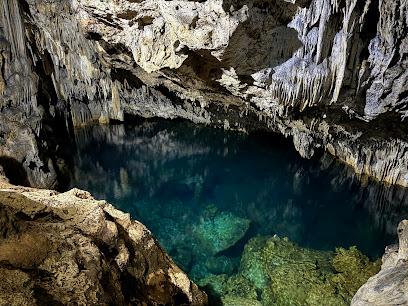
Royal Palace Of Tonga
Explore the Royal Palace of Tonga, a historic landmark showcasing Tongan culture and the monarchy's rich heritage in Nuku'alofa.
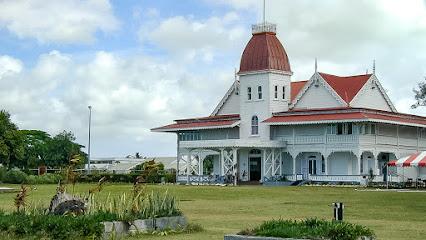
Royal Tombs
Explore the Royal Tombs of Nuku'alofa, a serene historical landmark reflecting Tonga's rich cultural heritage and royal legacy.
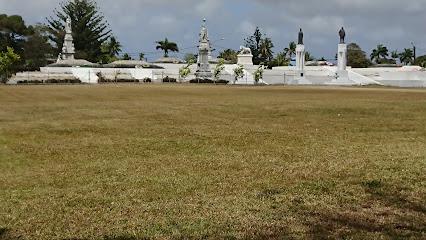
3 Headed Coconut
Explore the unique allure of the 3 Headed Coconut in Matahau, a must-see tourist attraction showcasing Tonga's cultural richness and natural beauty.
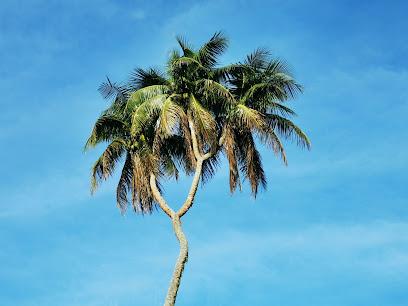
Vuna Wharf
Explore Vuna Wharf in Nuku'alofa, a breathtaking marina offering stunning ocean views and a taste of authentic Tongan culture.
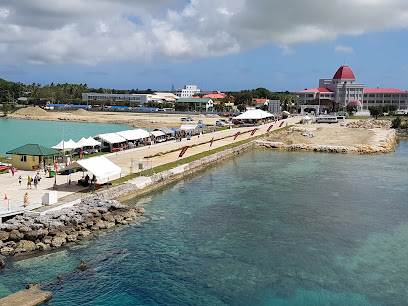
Ha'atafu Beach
Experience the breathtaking beauty and cultural richness of Ha'atafu Beach, Tonga's serene paradise for relaxation and adventure.
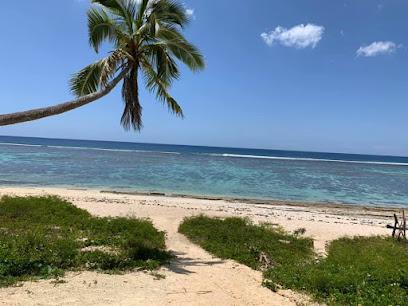
Captain Cook Landing Site
Explore the Captain Cook Landing Site in Alaki, a historical landmark that celebrates the legacy of exploration and offers stunning views of the South Pacific.
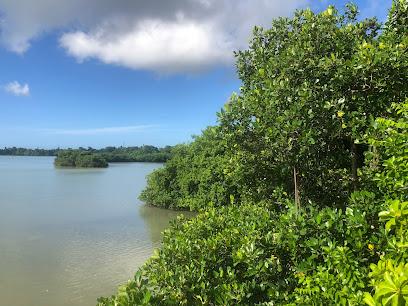
Atata Island
Discover Atata Island, Tonga's hidden paradise, where stunning beaches, vibrant marine life, and rich culture await your exploration.
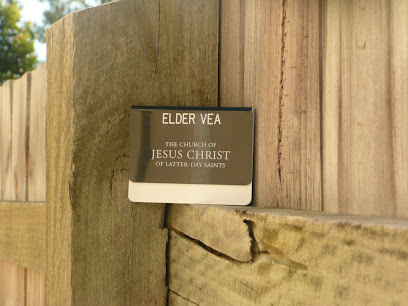
Teta Tours
Discover the beauty and culture of Tonga with Teta Tours, your trusted travel partner in Nuku'alofa.
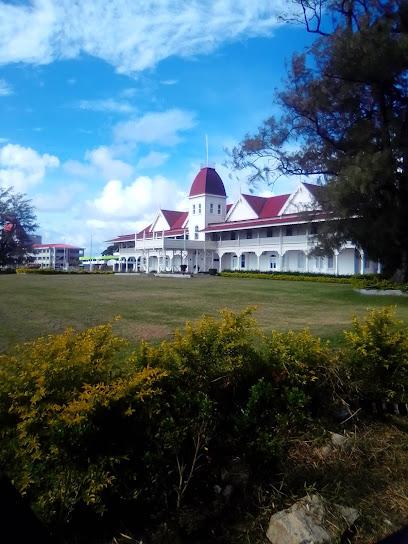
Tufaka Island
Discover the serene beauty of Tufaka Island, a hidden gem in the South Pacific with pristine beaches and vibrant marine life.

Toketoke Island
Explore the enchanting beauty of Toketoke Island, a tranquil paradise in Tonga, perfect for relaxation, adventure, and cultural experiences.

Essential places to dine
Little Italy Hotel
Discover Little Italy Hotel: Where Authentic Italian Cuisine Meets Tongan Hospitality in Nuku'alofa.

Friends Cafe
Experience Tongan hospitality at Friends Cafe - your perfect stop for local flavors and cozy ambiance in Nuku'alofa.
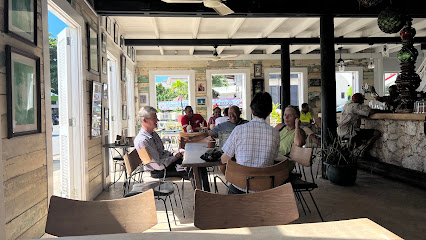
Cafe Escape
Discover delicious Tongan cuisine at Cafe Escape in Nuku'alofa - where every bite is a taste of paradise!
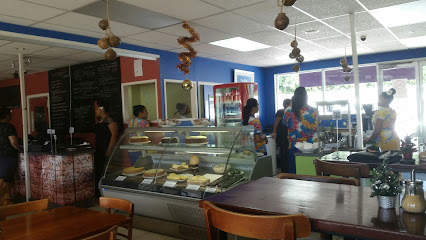
Billfish Bar and Restaurant
Discover authentic Tongan cuisine at Billfish Bar and Restaurant in Nuku'alofa - where every meal is a celebration of flavor and culture.
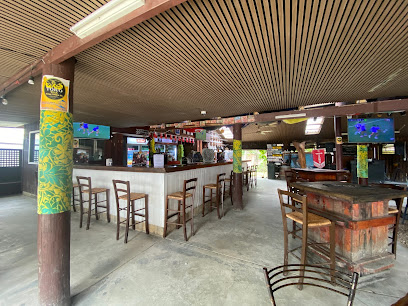
Chef Zero Restaurant
Experience exquisite Tongan cuisine at Chef Zero Restaurant in Nuku'alofa – where fresh ingredients meet traditional flavors.
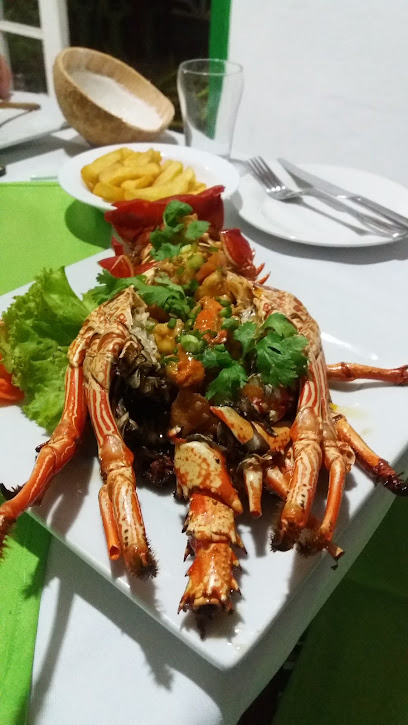
Waterfront Lodge
Discover tranquility at Waterfront Lodge in Nuku'alofa - your gateway to Tongan culture and stunning ocean views.

The TOP Restaurant and Lounge
Discover culinary excellence at The TOP Restaurant and Lounge in Nuku'alofa – where every meal is a celebration of Tongan flavors and breathtaking views.
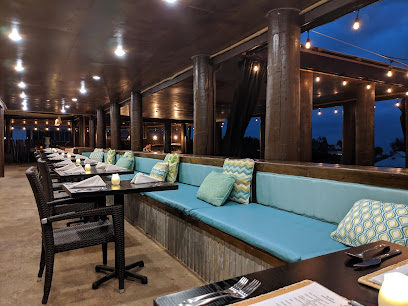
Ngutulei Bar & Restaurant
Discover authentic Tongan cuisine at Ngutulei Bar & Restaurant in Nuku'alofa – where flavor meets stunning island views.
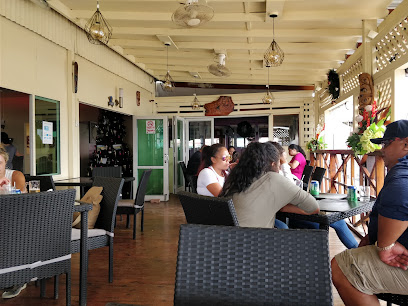
Young’s Kitchen
Experience authentic Tongan flavors at Young's Kitchen in Nuku'alofa – a culinary treasure for every traveler.
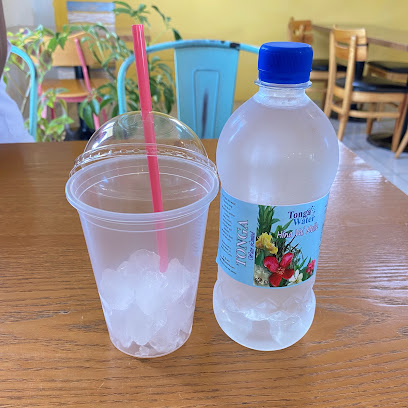
The Waterfront Cafe
Experience authentic Tongan flavors at The Waterfront Cafe with stunning ocean views in Nuku'alofa.
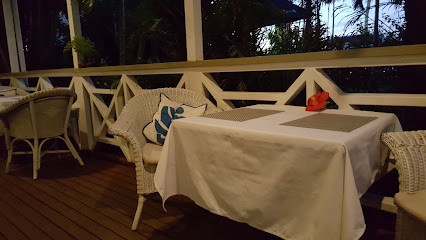
Nauti Ruby's Bar & Restaurant
Experience local flavors at Nauti Ruby's Bar & Restaurant in Nuku'alofa—where stunning ocean views meet delicious Tongan cuisine.
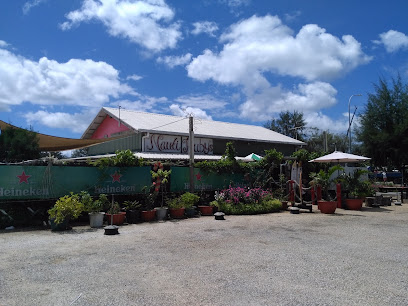
Sabrina's Chicken Vilovilo
Discover authentic Tongan barbecue at Sabrina's Chicken Vilovilo in Nuku'alofa - where flavor meets tradition!
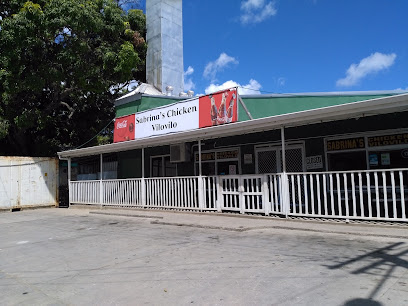
Cottage Breeze Restaurant
Discover authentic Tongan cuisine at Cottage Breeze Restaurant in Nuku'alofa - where every dish tells a story.
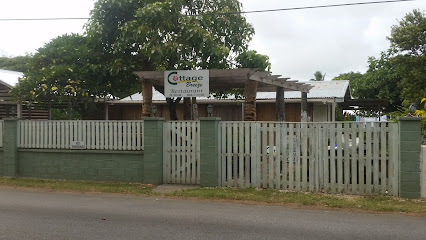
Tropical Taste
Discover the flavors of Tonga at Tropical Taste in Nuku'alofa - where authentic cuisine meets warm hospitality.
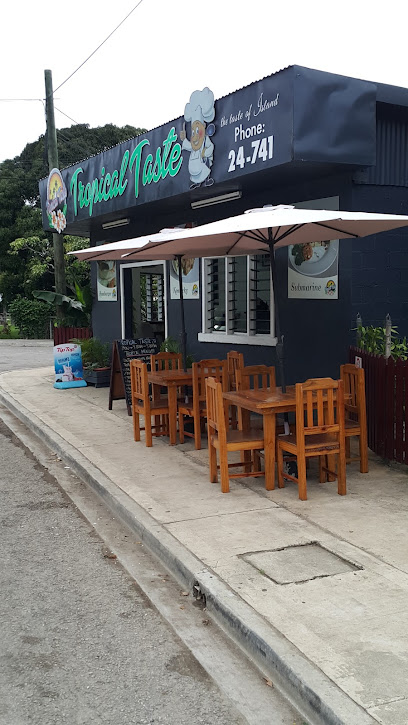
Moli Green Cafe
Experience the best of local coffee culture at Moli Green Cafe in Nuku'alofa - a cozy retreat for every traveler.
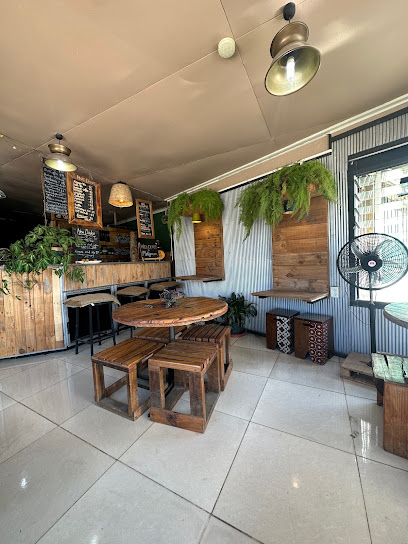
Markets, malls and hidden boutiques
Tanoa International Dateline Hotel
Experience the essence of Tonga at Tanoa International Dateline Hotel, where comfort meets local charm and breathtaking ocean views.

Mapu'a Vaea Blowholes
Discover the awe-inspiring Mapu'a Vaea Blowholes in Tonga, where nature's power creates stunning water displays against a beautiful coastal backdrop.
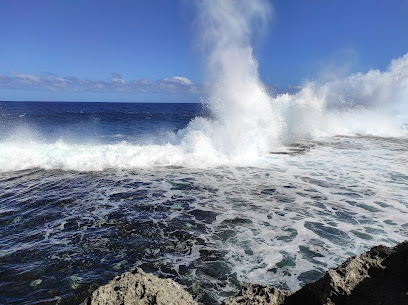
Fuaʻamotu International Airport (TBU)
Experience the charm of Tonga as you arrive at Fuaʻamotu International Airport, your gateway to stunning islands and rich culture.
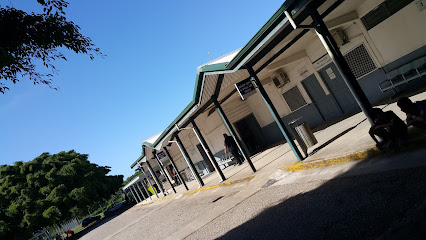
Ancient Tonga
Explore Ancient Tonga: A Cultural Gem of Nuku'alofa, Showcasing the Rich Heritage and Artistry of the Tongan People.
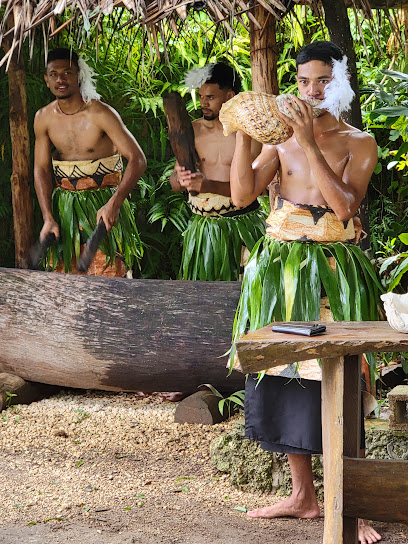
Talamahu Market
Discover the heart of Nuku'alofa at Talamahu Market, where fresh produce and Tongan culture converge in a vibrant atmosphere.
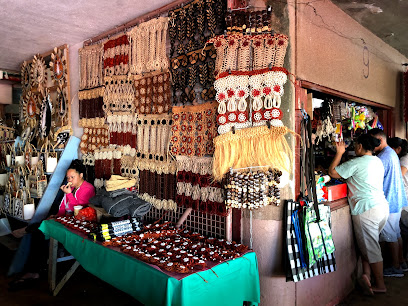
Vuna Wharf
Explore Vuna Wharf in Nuku'alofa: A scenic marina blending cultural experiences with stunning ocean views, ideal for your Tongan adventure.
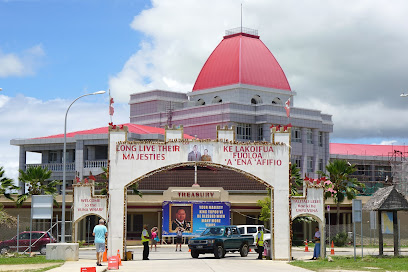
Costlow Supermarket
Discover local flavors and unique Tongan products at Costlow Supermarket, your essential stop for groceries in Pea, Tonga.
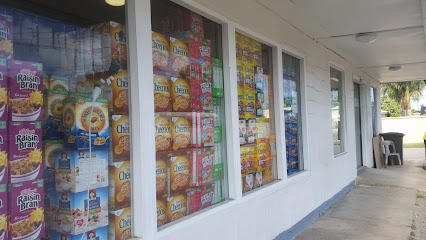
EZ TONGA ONLINE SHOPPING
Experience the best of Tonga's local products with ease at EZ Tonga Online Shopping, your ultimate e-commerce destination in Nuku'alofa.

Leiola
Explore the best beer selections in Nuku'alofa at Leiola, where local flavors meet international brews in a welcoming atmosphere.
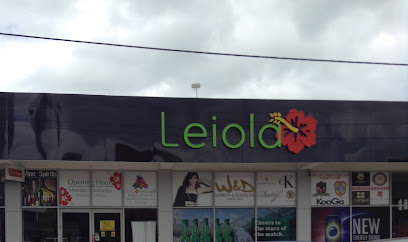
Value City (Tonga) Ltd.
Explore the hidden gems of Nuku'alofa at Value City (Tonga) Ltd., your go-to second-hand store for unique finds and local treasures.
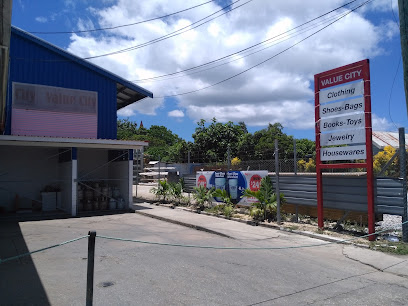
Le-Ata Tonga
Explore Le-Ata Tonga in Nuku'alofa for stylish clothing and unique Tongan souvenirs that embody the island's rich culture and artistry.
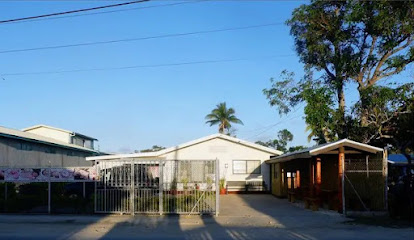
Narottam's
Discover unique Tongan fashion and exceptional service at Narottam's Clothing Store in Nuku'alofa, a must-visit for every tourist.
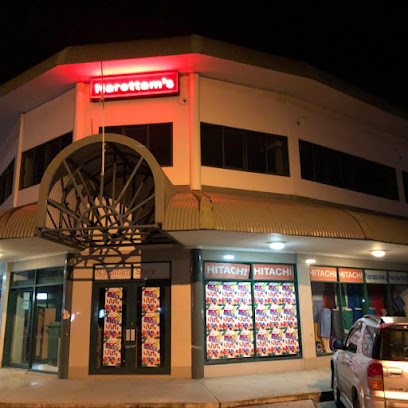
BD Fashion Tonga
Explore the vibrant styles of BD Fashion Tonga in Nuku'alofa, where local culture meets contemporary fashion in a delightful shopping experience.

Tonga Market Online
Explore unique Tongan crafts and goods at Tonga Market Online, your gateway to authentic local culture and souvenirs in Nuku'alofa.

Treasure Box Tonga
Explore the vibrant world of Tongan craftsmanship at Treasure Box Tonga, your go-to destination for unique fashion accessories.

Essential bars & hidden hideouts
Friends Cafe
Discover the flavors of Tonga at Friends Cafe, where local cuisine meets a welcoming atmosphere in the heart of Nuku'alofa.
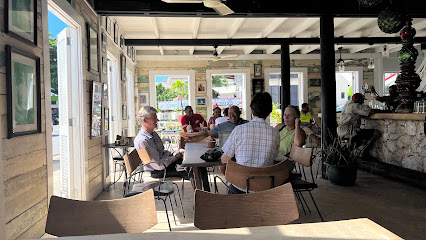
Cafe Escape
Discover Cafe Escape in Nuku'alofa for the best cappuccino and a delightful taste of Tongan culture and cuisine.
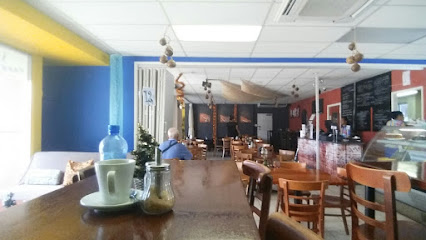
Billfish Bar and Restaurant
Experience the vibrant flavors of Tonga at Billfish Bar and Restaurant, the perfect blend of local culture and culinary delight in Nuku'alofa.
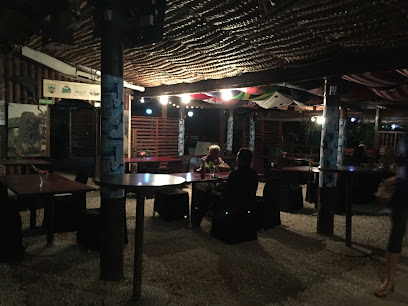
Seaview Lodge
Experience the tranquility of Seaview Lodge in Nuku'alofa, where modern comforts meet the stunning beauty of Tonga's coastline.

The TOP Restaurant and Lounge
Discover the heart of Tongan cuisine at The TOP Restaurant and Lounge in Nuku'alofa, where every dish tells a story.
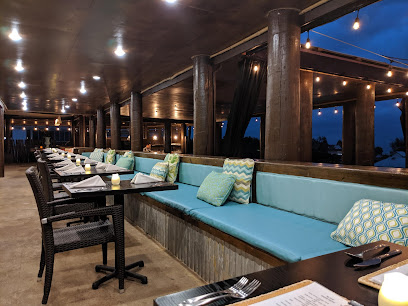
'Oholei Beach Resort
Discover the beauty and culture of Tonga at 'Oholei Beach Resort, where luxury meets adventure on a stunning beachfront.
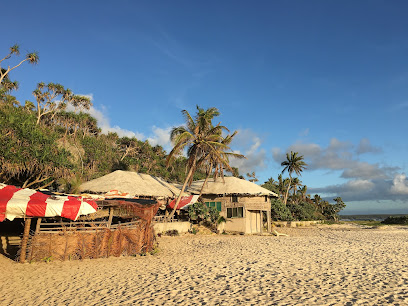
Nauti Ruby's Bar & Restaurant
Experience the vibrant flavors and relaxing atmosphere of Nauti Ruby's Bar & Restaurant in Nuku'alofa, Tonga, a true island gem for food and fun.
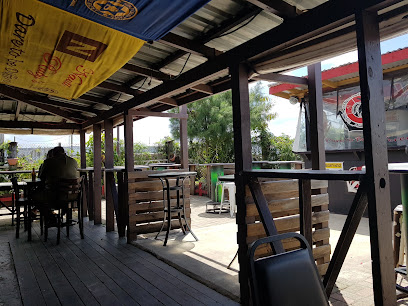
Reload Bar
Discover the vibrant nightlife of Nuku'alofa at Reload Bar, where local culture meets lively entertainment in a unique setting.
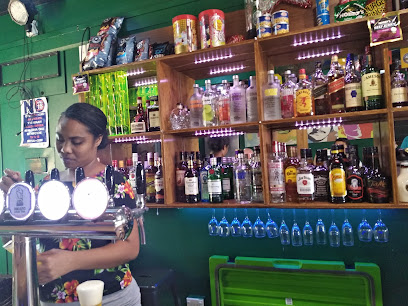
Pangaimotu Island
Explore the unspoiled beauty of Pangaimotu Island, a tranquil paradise in Tonga perfect for relaxation, adventure, and cultural experiences.
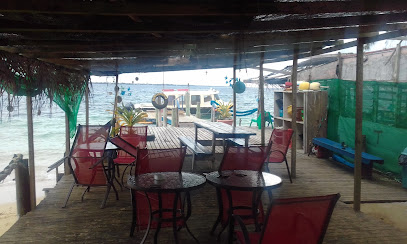
Tali'eva Inn Bar
Discover Tali'eva Inn Bar in Nuku'alofa: a cozy retreat with refreshing drinks and a welcoming atmosphere.
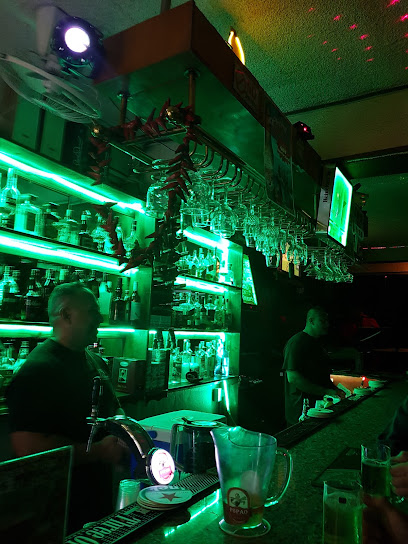
Kafataha Bong Club
Experience the vibrant nightlife at Kafataha Bong Club in Nuku'alofa, where local drinks and friendly vibes await every visitor.

Local Phrases
-
- HelloMalo e lelei
[mah-loh eh leh-leh] - GoodbyeNofo a
[noh-foh ah] - YesIo
[ee-oh] - NoʻIkai
[ee-kai] - Please/You're welcomeFakamolemole
[fah-kah-moh-leh-moh-leh] - Thank youMālō
[mah-loh] - Excuse me/SorryFakamālo
[fah-kah-mah-loh] - How are you?ʻEku fefe?
[eh-koo feh-feh] - Fine. And you?Lelei. Mo ʻoe?
[leh-leh. moh oh-eh] - Do you speak English?ʻOku fai ha lea faka-Pālangi?
[oh-koo fai hah leh-ah fah-kah-pah-lahng-ee] - I don't understandTē u faholaʻi
[teh oo fah-hoh-lah-ee]
- HelloMalo e lelei
-
- I'd like to see the menu, pleaseTeke lava ke tatala ʻa e meniu
[teh-keh lah-vah keh tah-tah-lah ah eh meh-nee-oo] - I don't eat meatʻIkai au kai meʻa ʻofu
[ee-kai ow kai meh-ah oh-foo] - Cheers!Mālo!
[mah-loh] - I would like to pay, pleaseTeke lava ke totongi
[teh-keh lah-vah keh toh-tohng-ee]
- I'd like to see the menu, pleaseTeke lava ke tatala ʻa e meniu
-
- Help!Tokoni!
[toh-koh-nee] - Go away!Alu atu!
[ah-loo ah-too] - Call the Police!Fonuaʻi he Pōlisi
[foh-nuah-ee heh poh-lee-see] - Call a doctor!Fonuaʻi he toka
[foh-nuah-ee heh toh-kah] - I'm lostKuo ʻalu ʻi he loto
[kwoh ah-loo ee heh loh-toh] - I'm illKuo ʻoku maʻu
[kwoh oh-koo mah-oo]
- Help!Tokoni!
-
- I'd like to buy...Teke lava ke fakatau...
[teh-keh lah-vah keh fah-kah-tow] - I'm just lookingʻOku ou ʻosi fakatongi
[oh-koo oh oh-see fah-kah-tohng-ee] - How much is it?Fēfē hano?
[feh-feh hah-noh] - That's too expensiveKo e hiki fakalotofale
[koh eh hee-kee fah-kah-loh-toh-fah-leh] - Can you lower the price?ʻOku mau fakamalo
[oh-koo mow fah-kah-mah-loh]
- I'd like to buy...Teke lava ke fakatau...
-
- What time is it?ʻE ha hua taimi?
[eh hah hoo-ah tah-ee-mee] - It's one o'clockKo e taha
[koh eh tah-hah] - Half past (10)Fika taha (10)
[fee-kah tah-hah (ten)] - MorningUa
[oo-ah] - AfternoonApongipongi
[ah-pohn-gee-pohn-gee] - EveningMalamalama
[mah-lah-mah-lah-mah] - YesterdayʻUluaki
[oo-loo-ah-kee] - TodayʻOku nei
[oh-koo nay] - TomorrowʻApō
[ah-poh] - 1Taha
[tah-hah] - 2Fua
[foo-ah] - 3Tolu
[toh-loo] - 4Fā
[fah] - 5Nima
[nee-mah] - 6Ono
[oh-noh] - 7Fitu
[fee-too] - 8Valu
[vah-loo] - 9Hiva
[hee-vah] - 10Uvalu
[oo-vah-loo]
- What time is it?ʻE ha hua taimi?
-
- Where's a/the...?Ko fē hano ʻa e...?
[koh feh hah-noh ah eh] - What's the address?ʻE ha hingoa fakatatau?
[eh hah hee-ngoh-ah fah-kah-tah-tow] - Can you show me (on the map)?ʻOku fakahaʻi au (ʻi he mapa)?
[oh-koo fah-kah-hah-ee ow (ee heh mah-pah)] - When's the next (bus)?ʻE ʻenitā hano e (bus)?
[eh eh-nee-tah hah-noh eh (bus)] - A ticket (to ....)ʻE tikitī (ki ...)
[eh tee-kee-tee (kee)]
- Where's a/the...?Ko fē hano ʻa e...?
History of Vava'u
-
Vava'u, a part of the Kingdom of Tonga, has been inhabited for thousands of years. The earliest settlers were Polynesians who navigated vast ocean distances using sophisticated voyaging canoes and celestial navigation techniques. These early inhabitants established complex societies with rich traditions and social hierarchies.
-
In 1781, the renowned British explorer Captain James Cook visited Vava'u. Although he didn't land on the island, he charted its location and referred to it as 'Vavau.' Cook's exploration was pivotal in bringing the island into the awareness of European navigators and traders.
-
The early 19th century saw the arrival of European missionaries in Vava'u. Among the most notable were members of the London Missionary Society, who arrived in 1839. They played a significant role in converting the local population to Christianity, which has had a lasting impact on the island's culture and societal norms.
-
In 1876, Vava'u became a crucial player in the Treaty of Friendship between Tonga and the British Empire. This treaty was aimed at ensuring Tonga's protection from other colonial powers while allowing the island nation to maintain its sovereignty. Vava'u's strategic location made it an important site during these negotiations.
-
The Vava'u Festival and Regatta, established in the late 20th century, has become an annual celebration of the island's rich maritime heritage. This event attracts sailors and tourists from around the world, featuring traditional Tongan music, dance, and boat races that highlight Vava'u's enduring connection to the sea.
-
In recent decades, Vava'u has seen significant economic development, primarily driven by tourism. The island's stunning landscapes, pristine waters, and vibrant marine life have made it a popular destination for divers, sailors, and adventure seekers. Efforts to balance development with environmental preservation continue to shape Vava'u's modern identity.
Vava'u Essentials
-
Vava'u is accessible by both air and sea. The main gateway is the Lupepau'u International Airport (VAV), which receives flights from Tonga's capital, Nuku'alofa, as well as from Fiji. There are also seasonal flights from New Zealand and Australia. For those traveling by sea, Vava'u is a popular stop for yachts and cruise ships. Ferry services are also available from Tongatapu, the main island of Tonga, but they can be infrequent and subject to weather conditions.
-
Once in Vava'u, the main mode of transportation is by car, scooter, or bicycle. Car rentals are available, and taxis are relatively inexpensive. There are also local buses that run between the main town of Neiafu and other villages on the island, although they may not adhere to a strict schedule. For island hopping and exploring the surrounding waters, boat rentals and guided tours are widely available.
-
The official currency in Tonga is the Tongan Pa'anga (TOP). Credit cards are accepted in some hotels, restaurants, and larger shops, but it's advisable to carry cash, particularly in smaller establishments and markets. ATMs are available in Neiafu, but they may not always be reliable, so it's wise to bring sufficient cash for your stay.
-
Vava'u is generally a safe destination for tourists. However, as with any travel destination, it's important to take standard precautions. Avoid walking alone at night in unfamiliar areas and keep an eye on your belongings in crowded places. Vava'u has a low crime rate, but petty theft can occur, especially in tourist areas. It's always best to stay vigilant and aware of your surroundings.
-
In case of emergency, dial 911 for immediate assistance. The local hospital in Neiafu provides basic medical services, but for more serious conditions, evacuation to Tongatapu or even overseas may be necessary. It's highly recommended to have travel insurance that covers medical emergencies. For minor health issues, there are pharmacies in Neiafu where you can purchase over-the-counter medications.
-
Fashion: Do dress modestly, especially when visiting villages and religious sites. Avoid wearing revealing clothing. Religion: Do respect local customs and traditions. Always remove your shoes before entering homes and religious buildings. Public Transport: Do be respectful and give up your seat to elderly passengers. Greetings: Do greet people with a warm 'Malo e lelei' (Hello). A friendly nod or handshake is also appreciated. Eating & Drinking: Do try local delicacies and accept food offerings graciously. Don't refuse hospitality, as it is considered impolite.
-
To experience Vava'u like a local, visit the local markets where you can buy fresh produce and traditional Tongan goods. Engage with locals, as they are often friendly and willing to share stories about their culture and history. Don't miss the opportunity to attend a traditional Tongan feast (umu) and cultural show. For a unique experience, explore the islands by kayak or take a whale-watching tour, as Vava'u is renowned for its humpback whale sightings during the migration season.
Nearby Cities to Vava'u
-
Things To Do in Kolovai
-
Things To Do in Ha'apai
-
Things To Do in Nuku'alofa
-
Things To Do in Neiafu
-
Things To Do in Pangai
-
Things To Do in Foa
-
Things To Do in Ha'ano
-
Things To Do in Eua
-
Things To Do in Levuka
-
Things To Do in Nausori
-
Things To Do in Suva
-
Things To Do in Savusavu
-
Things To Do in Rakiraki
-
Things To Do in Sigatoka
-
Things To Do in Labasa









